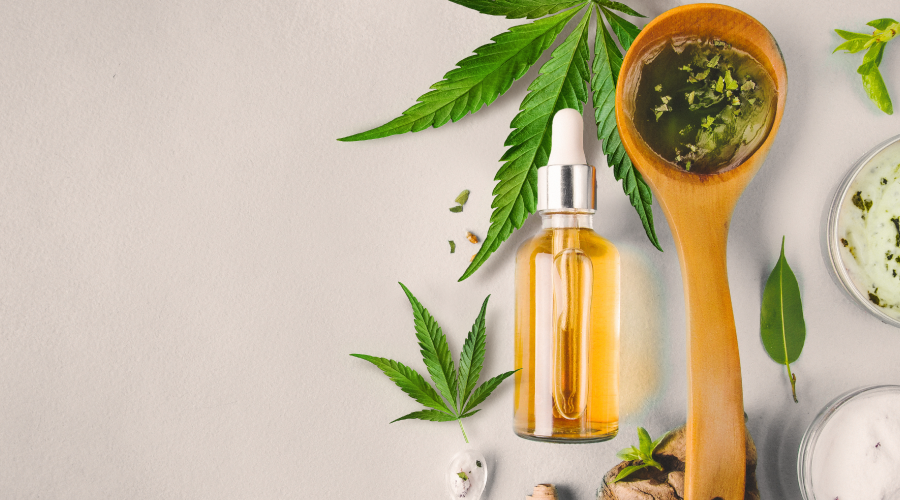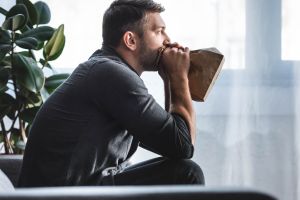

Essential oils have been gaining quite a lot of attention for acting as a remedy for common health conditions like insomnia, sore throats, headaches, etc. Apart from such conditions, people are also keen on using essential oils for anxiety.
When dealing with anxiety, the body undergoes an uncomfortable change as the mind too is in fight or flight mode constantly. Fortunately, there are various essential oils out there that can help ease the symptoms related to anxiety and the underlying emotions. Read on to learn about the different health benefits that the essential oils serve you with. You can also learn here as to how they can improve your quality of life quality.
Do Essential Oils Really Work?
Yes, essential oils do help those who are experiencing anxiety, fear, or panic. It is commonly acknowledged that each method of using essential oils, whether physically, by inhalation (aromatherapy), or, in some circumstances, internally, offers unique advantages for the mind, body, and soul.
One of the many advantages of aromatherapy, according to Oxford Research, is its efficiency in preserving sleep amid stressful circumstances. Essential oils have also been proven to lessen the side effects of anxiety, including mood swings, severe acne breakouts, and hair loss.
Rose oil is known as a stress relief essential oil and is a favourite for many.
Health Benefits of Essential Oils
Essential oils are plant extracts. They are created by steaming or pressing different plant parts, such as flowers, bark, leaves, or fruit, to extract the compounds that give off a scent. Essential oils are used in cases of:
1. Stress & Anxiety
As per studies, essential oils also help reduce and manage stress. When you inhale essential oils, your brain sends signals to specific emotions that make you feel cheerful.
You get a lot of tension and anxiety alleviation from massages with specific essential oils. Using essential oils for massage relaxes you and gives you tremendous relief from stress & anxiety.
2. Sleep Problems
Sleep quality can be enhanced by inhaling lavender oil, especially after childbirth.
3. Headache
Recent studies have shown that using peppermint oil and lavender oil together reduces headaches.
4. Healthy Hair
Both greasy and dry hair might benefit from peppermint oil treatment. The areas of the scalp benefit from better blood flow and result in better hair growth. In addition to keeping hair lustrous and working to reduce dandruff, lavender essential oil helps to deeply condition hair.
5. Skin Nourishment
Essential oils offer skin healing and deep nourishment. Due to their anti-inflammatory characteristics, Lavender oil and tea tree oil can help with the irritation and inflammation caused by skin disorders like acne, eczema, burns, and bug bites. It improves the skin’s appearance by reducing wrinkles.
6. Reducing Inflammation
There are some essential oils that can also help reduce inflammation and irritation on skin. If a diluted essential oil is applied to the affected region, the pain as well as swelling can be reduced.
Best Essential Oils for Stress and Anxiety
With more than 90 varieties in essential oils, you can easily choose one for a specific application or scent. Experts use these essential oils in naturopathy as well as other complementary/ alternative therapies. Here are some of the best essential oils for stress and anxiety:
1. Rose Oil
This one is counted amongst the best essential oils for anxiety owing to its calming, floral scent. This fragrance can help you with stress or anxiety. Rose oil is also known to support hair growth as well as help reduce stiffness and discomfort in joints.
2. Lavender Oil
Lavender oil is one of the best essential oils for anxiety and also helps treat insomnia. This essential oil also helps reduce pain and can be used in various ways because of its calming and revitalising properties.
3. Sandalwood Oil
It is extremely well-liked for its aroma as well as for reducing anxiety and enhancing sleep.
4. Jasmine Oil
A sweet-smelling oil is used as a stress reliever with the potential to prevent signs of ageing, and cure inflammation and dry skin.
5. Peppermint Oil
Irritable bowel syndrome and headaches are treated with it. Patients who suffer from migraines can benefit from rubbing peppermint oil on their temples. Also, the scent of peppermint oil can improve your mood.
6. Roman Chamomilla Oil
It’s excellent for mood-lifting and relaxation. Mental diseases including anxiety and depression are frequently treated with it.
7. Ylang-Ylang Oil
It is mainly used to relieve pain, improve mood & lower blood pressure
8. Basil Oil
It is an essential herb to ease a cough, enhance mood, & soothe sore muscles.
9. Lemon Oil
It helps with digestion, mood, and other things. Lemon oil’s fragrance relieves nausea and vertigo. It is also recognized for lowering symptoms of related disorders like depression.
10. Tea Tree Oil
It’s excellent for treating fungus infections and increasing immunity. It is a very effective elixir for the treatment of acne and blemishes since it lessens the amount of acne-causing bacteria on the skin and dries out active acne.
How to Use Essential Oils?
Essential oils are mainly used in three ways–
1. By Inhalation
This method helps you to smell essential oil by diffusing an essential oil in a diffuser or by steam inhalation or spray.
2. Through Skin
Some essential oils can be absorbed by the skin when applied topically. These oils must be diluted before being used directly.
3. Oral Intake
You can ingest essential oils for various reasons but make sure they are for consumption [certified for oral use].
Tips for Using Essential Oils
Some tips for using essential oils are:
1. Dilute & Use
Never use undiluted essential oils because they can cause allergic reactions. Always mix it with the recommended medium before using it.
2. Avoid Over consumption
The idea that consuming more essential oils will increase your benefits is illogical. Essential oils may be dangerous due to the high chemical concentration in them which may result in causing some problems with your body.
3. Check the Quality
Before making a purchase, always seek reliable production. Also, avoid purchasing oil marked “absolute” because it contains petroleum-based byproducts [other than essential oil].
4. Don’t use Essential Oils for Everything
Use them only when you are sure of their effectiveness. Essential oils won’t help you if you are dehydrated and feeling weak.
Conclusion
Essential oils are extracted from various parts of the plant, depending on their properties and uses. These oils can be used for a variety of purposes like aromatherapy, perfumery, skincare, etc. Essential oils have been used since ancient times as they have many medicinal benefits which make them very popular among people all over the world. These natural products have great potential to stimulate the limbic system of the brain. And they are also helpful in promoting feelings of calm and relaxation.




